Experiencing a miscarriage can be one of the most emotionally challenging experiences for expecting parents. While the journey of pregnancy brings joy and excitement, understanding the potential complications, including different forms of miscarriage, becomes crucial for proper preparation and timely medical intervention. You should know each and everything before pregnancy planning. This guide aims to provide comprehensive information about various types of miscarriages, their signs and symptoms, and essential preventive measures to help you navigate this sensitive aspect of pregnancy.
Understanding Miscarriage
A miscarriage, medically termed as spontaneous abortion, occurs when a pregnancy ends naturally before the 20th week. The experience of a miscarriage at home or during early pregnancy can be both physically and emotionally overwhelming. Many women face this difficult situation, and understanding that it’s not their fault is crucial. Various factors can contribute to pregnancy loss, including chromosomal abnormalities, maternal health conditions, or environmental factors. By understanding the different types of miscarriages and their warning signs, you can be better prepared to seek appropriate medical care when needed.
Types of Miscarriages

Chemical Pregnancy
A chemical pregnancy represents the earliest form of miscarriage, occurring shortly after implantation. This type of early miscarriage happens before the fetus can be detected on an ultrasound, typically around the 5th week of pregnancy. Many women may not even realize they experienced a chemical pregnancy, as it often occurs around the time of their expected period. The term “chemical” refers to the fact that the pregnancy is only detected through hormonal changes in blood or urine tests.
Signs & Symptoms
- A positive pregnancy test followed by a negative test within days or weeks
- Period-like bleeding that arrives on time or slightly late
- Mild cramping similar to menstrual pain
- Shorter duration of pregnancy symptoms
- Fatigue during pregnancy
- No visible embryonic development on ultrasound
Blighted Ovum
A blighted ovum, also known as an anembryonic pregnancy, occurs when a fertilized egg successfully implants in the uterus but fails to develop into an embryo. The pregnancy sac forms and grows, but remains empty. This type of pregnancy miscarriage typically occurs within the first trimester and can be particularly confusing as early pregnancy symptoms may still be present due to hormonal changes.
Signs & Symptoms
- Pregnancy symptoms may stop suddenly or continue
- Vaginal bleeding or spotting that starts light but may become heavier
- Cramping ranging from mild to severe
- No fetal heartbeat detected on ultrasound
- Empty gestational sac visible on ultrasound
- Slower progression of pregnancy symptoms
Missed Miscarriage
In a missed miscarriage, also called a silent miscarriage, the fetus has stopped developing, but the body hasn’t recognized the pregnancy loss. This can be particularly distressing as pregnancy symptoms may continue due to hormones still being produced. The condition is usually discovered during a routine prenatal checkup when the healthcare provider cannot detect a heartbeat.
Signs & Symptoms
- Pregnancy symptoms may gradually decrease or persist
- No fetal heartbeat on ultrasound
- Brown discharge or spotting
- Absence of expected pregnancy progression
- Decreased sensitivity in breasts
- Stopping morning sickness (if previously present)
Threatened Miscarriage
A threatened miscarriage presents warning signs that a miscarriage might occur, but the pregnancy may still continue with proper care and rest. This condition requires immediate medical attention and careful monitoring. Many women who experience a threatened miscarriage go on to have successful pregnancies with appropriate medical care and rest.
Signs & Symptoms
- Light vaginal bleeding or spotting
- Mild abdominal cramping
- Back pain
- No tissue passage
- Closed cervix
- Present fetal heartbeat
- Continued pregnancy symptoms
Inevitable Miscarriage
When a miscarriage becomes inevitable, it means the pregnancy will end despite any interventions. The cervix has begun to dilate, and there’s no way to stop the process. This stage requires immediate medical attention to ensure all tissue is properly expelled and to prevent complications.
Signs & Symptoms
- Heavy bleeding with clots
- Strong cramping similar to labor pains
- Open cervix
- Passing of pregnancy tissue
- Severe lower back pain
- Decrease in pregnancy symptoms
- Fever in some cases
Incomplete Miscarriage
An incomplete miscarriage occurs when some, but not all, of the pregnancy tissue has been expelled from the uterus. This condition requires medical intervention to prevent complications such as infection or prolonged bleeding. Treatment options may include medication or a minor surgical procedure called dilation and curettage (D&C).
Signs & Symptoms
- Heavy bleeding that may start and stop
- Severe cramping
- Partial passage of pregnancy tissue
- Continued pregnancy symptoms
- Open cervix
- Visible remaining tissue on ultrasound
- Persistent pain or discomfort
Complete Miscarriage
A complete miscarriage happens when all pregnancy tissue has been naturally expelled from the uterus. While physically complete, emotional recovery may take time, and follow-up care is still important to ensure proper healing.
Signs & Symptoms
- Heavy bleeding that gradually decreases
- Passing of all pregnancy tissue
- Cramping that subsides over time
- Pregnancy symptoms disappear
- Closed cervix on examination
- Clear ultrasound showing an empty uterus
- Return to normal menstrual cycle within 4-6 weeks
Safety Measures To Avoid Miscarriage

While not all miscarriages can be prevented, certain measures can help reduce the risk and promote a healthy pregnancy:
- Regular prenatal check-ups to monitor both maternal and fetal health
- Maintaining a healthy lifestyle with balanced nutrition
- Avoiding alcohol, smoking, and limiting caffeine intake
- Taking prescribed prenatal vitamins consistently
- Managing chronic health conditions under medical supervision
- Avoiding high-risk activities that could harm the pregnancy
- Getting adequate rest and managing stress levels
- Staying hydrated and maintaining proper fluid intake
- Avoiding exposure to harmful chemicals or radiation
- Following your healthcare provider’s recommendations
- Maintaining a healthy weight before and during pregnancy
- Exercising moderately as approved by your doctor
Conclusion
Understanding the different types of miscarriage can help you recognize warning signs and seek appropriate medical care when needed. Remember that miscarriage is often not preventable and isn’t your fault. Having this knowledge empowers you to make informed decisions about your health and pregnancy care. If you experience any concerning symptoms during pregnancy, don’t hesitate to contact your healthcare provider immediately.
The emotional impact of a miscarriage can be significant, and it’s essential to seek support from loved ones and healthcare professionals. Remember that you’re not alone in this journey, and there are resources and support systems available to help you cope with the loss.
Want to learn more about pregnancy, maternal health, and related topics? Visit Momvila for more informative articles and resources to support your pregnancy journey. Our expert-reviewed content covers everything from conception to postpartum care, helping you make informed decisions about your reproductive health.
Frequently Asked Questions
Can I prevent a miscarriage?
Most miscarriages occur due to chromosomal abnormalities and cannot be prevented. However, maintaining a healthy lifestyle, taking prenatal vitamins, and following your doctor’s advice can help reduce certain risk factors.
How long should I wait before trying to conceive after a miscarriage?
Physically, you can typically try to conceive after one complete menstrual cycle. However, doctors often recommend waiting 2-3 months to allow for emotional healing and proper physical recovery. Always consult your healthcare provider for personalized advice.
What are the chances of having another miscarriage?
Having one miscarriage doesn’t increase your risk of having another. About 85% of women who have experienced a miscarriage go on to have successful subsequent pregnancies when they conceive again.
When should I see a doctor after a suspected miscarriage?
Seek immediate medical attention if you experience heavy bleeding (soaking through a pad in less than an hour), severe abdominal pain, fever, or foul-smelling discharge. These could indicate complications that require urgent care.
Can stress cause miscarriage?
While everyday stress doesn’t cause miscarriage, chronic high levels of stress may affect pregnancy. Focus on stress management techniques and discuss any concerns with your healthcare provider.






